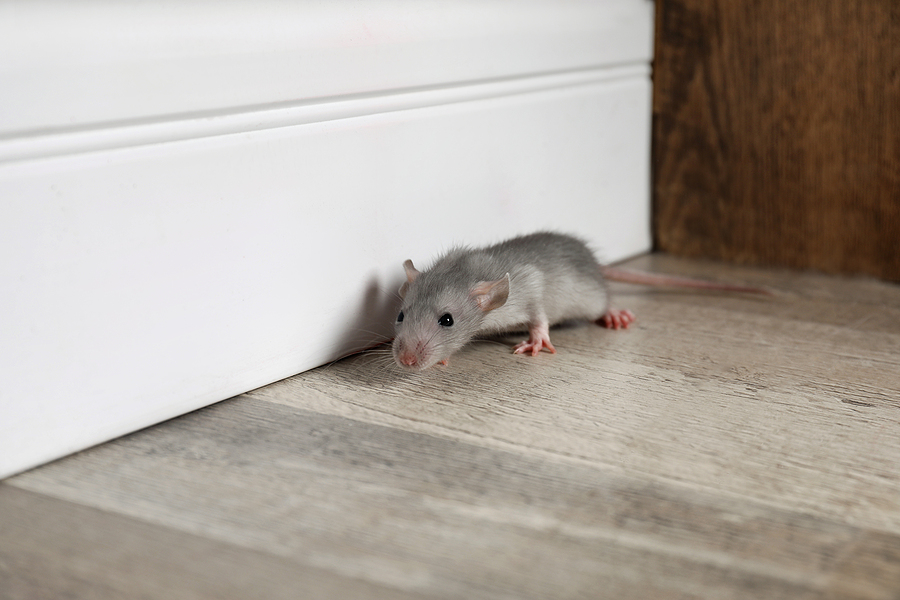Welcome to your all-inclusive guide on preventing rodent damage in your home. Rodents, like mice and rats, are more than just annoying pests; they can cause significant harm to your property and health. From inflicting structural damage to transmitting diseases, these unwanted intruders can turn your organized home into a chaotic mess. Thankfully, by adopting a proactive approach, you can safeguard your home against the negative effects these pests can bring.

Recognizing the Risk: The Importance of Prevention
Rodents are infamous for their ability to gnaw through nearly anything, including wires, insulation, and even concrete. Such behavior can lead to substantial structural damage and create fire hazards. The financial burden of repairing these damages can be overwhelming. Additionally, rodents carry harmful parasites and diseases that pose serious health risks to your family. For these reasons, preventing rodent damage in your home is essential.
Identify and Block Entry Points
Your first line of defense in preventing rodent infestation is to conduct a complete inspection of both the exterior and interior of your home. Look for any cracks or gaps near doors, windows, and the foundation that could serve as entry points for rodents. Even a small gap, as tiny as a quarter inch, can allow these pests to enter. Use caulk, steel wool, or metal mesh to seal these openings and block their access.
Consistent Maintenance and Tidiness
Keeping a clean and organized living space is essential for deterring rodents. Regular cleaning routines and effective waste management practices can significantly lower the likelihood of an infestation. Store food in airtight containers and promptly clean up spills and crumbs that could attract these pests.
Utilizing Natural Deterrents
Employing natural deterrents is a safe and affordable way to keep rodents at bay. Scents from peppermint oil, cloves, and cedar mulch are known to repel rodents. Strategically placing these items throughout your home can add an extra layer of protection.
Establishing a Rodent-Free Perimeter
Maintaining your property's perimeter is as crucial as securing the interior. Ensure that grass and shrubbery are trimmed away from the house, and avoid stacking firewood directly against the foundation. This practice eliminates potential habitats for rodents and reduces attractants. Additionally, installing physical barriers like hardware cloth around vulnerable areas can help deter entry.
Professional Help: When to Seek Expertise
In some cases, despite your best efforts, rodents may prove to be persistent invaders requiring professional help. If you notice consistent signs of rodent activity, such as droppings, gnawed materials, or unexplained noises within your walls, it might be time to contact professionals. Pest control experts employ advanced techniques to provide a long-term solution to your rodent problems.
Expert Insights
For more DIY pest control strategies and expert tips for creating a rodent-free home, consider exploring resources provided by pest control professionals. Their advice ranges from understanding rodent behavior to implementing complex exclusion methods that go beyond basic DIY approaches.
Additional Resources
Find a helpful guide on catching mice and other tricks to enhance your homes safety against pests.

FAQ: Common Questions About Rodent Prevention
1. What attracts rodents to my home? Rodents tend to be drawn to homes that provide food, water, and shelter. Unsealed food and cluttered areas can make your home very inviting to these intruders.
2. How often should I check for rodent activity? Regular inspections should be included in your maintenance routine, particularly before colder months when rodents seek warmth and shelter. Perform a detailed check inside and around your home every few months.
3. Can I rely on traps and poison for rodent control? While traps and poison can help reduce rodent populations, they should be part of a more comprehensive strategy that includes sealing entry points and maintaining a clean, clutter-free environment.
This article contains affiliate links. We may earn a commission at no extra cost to you.
